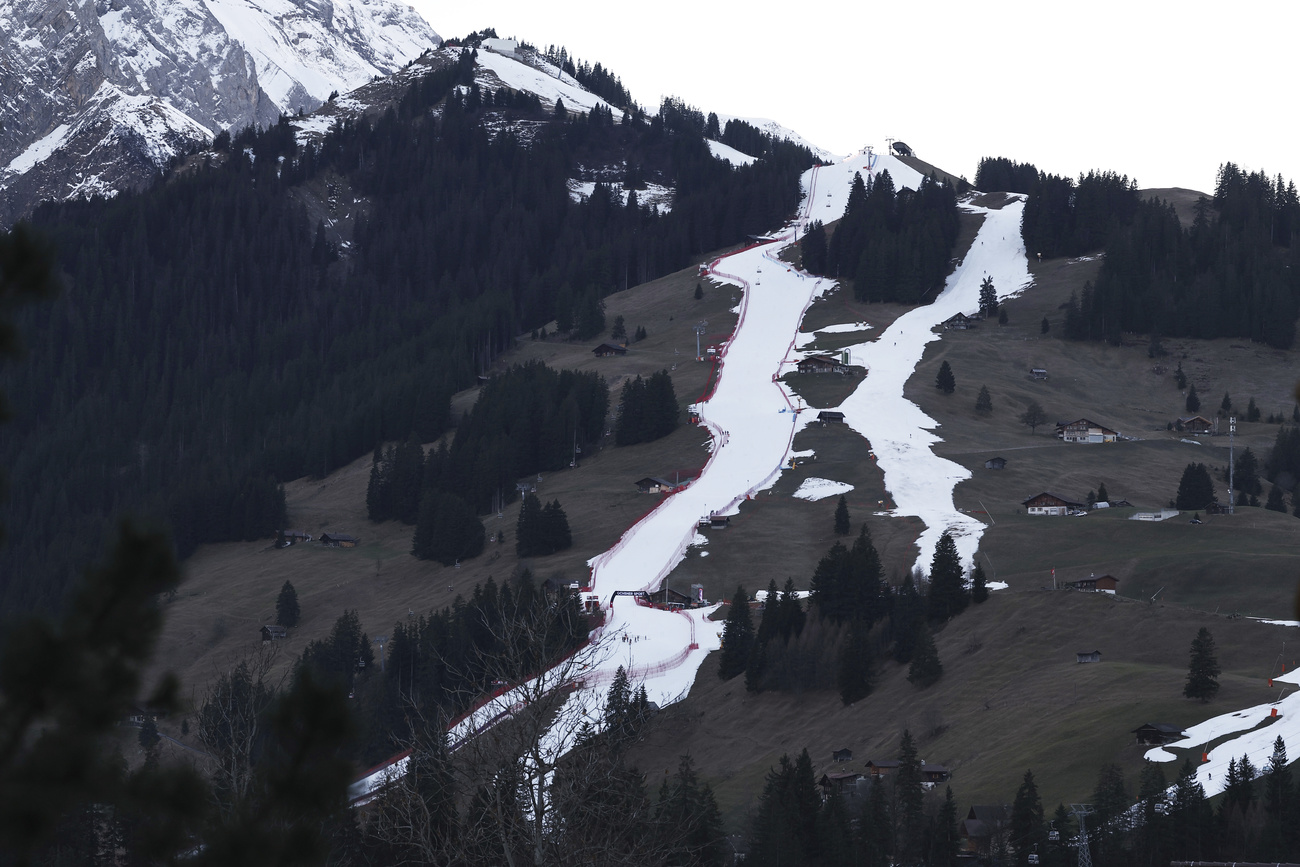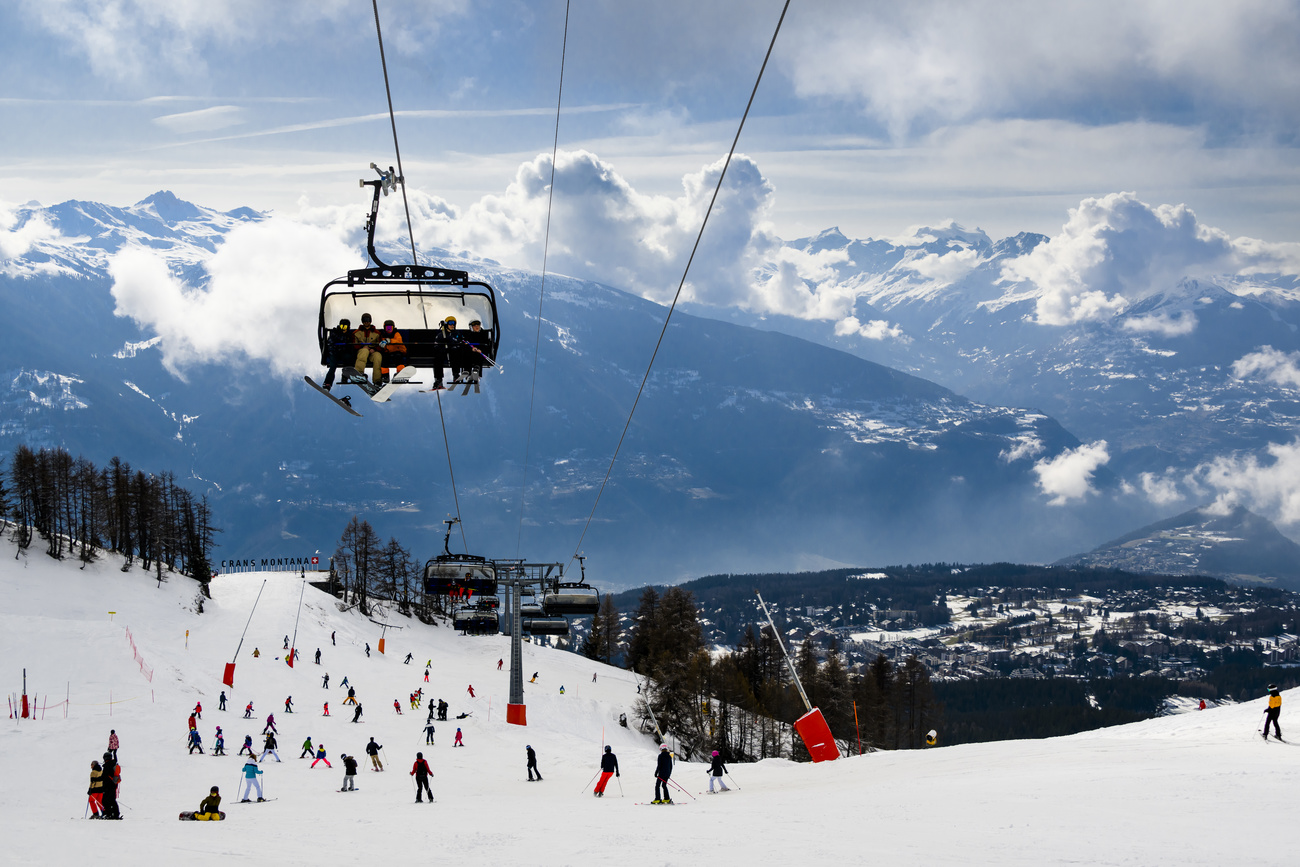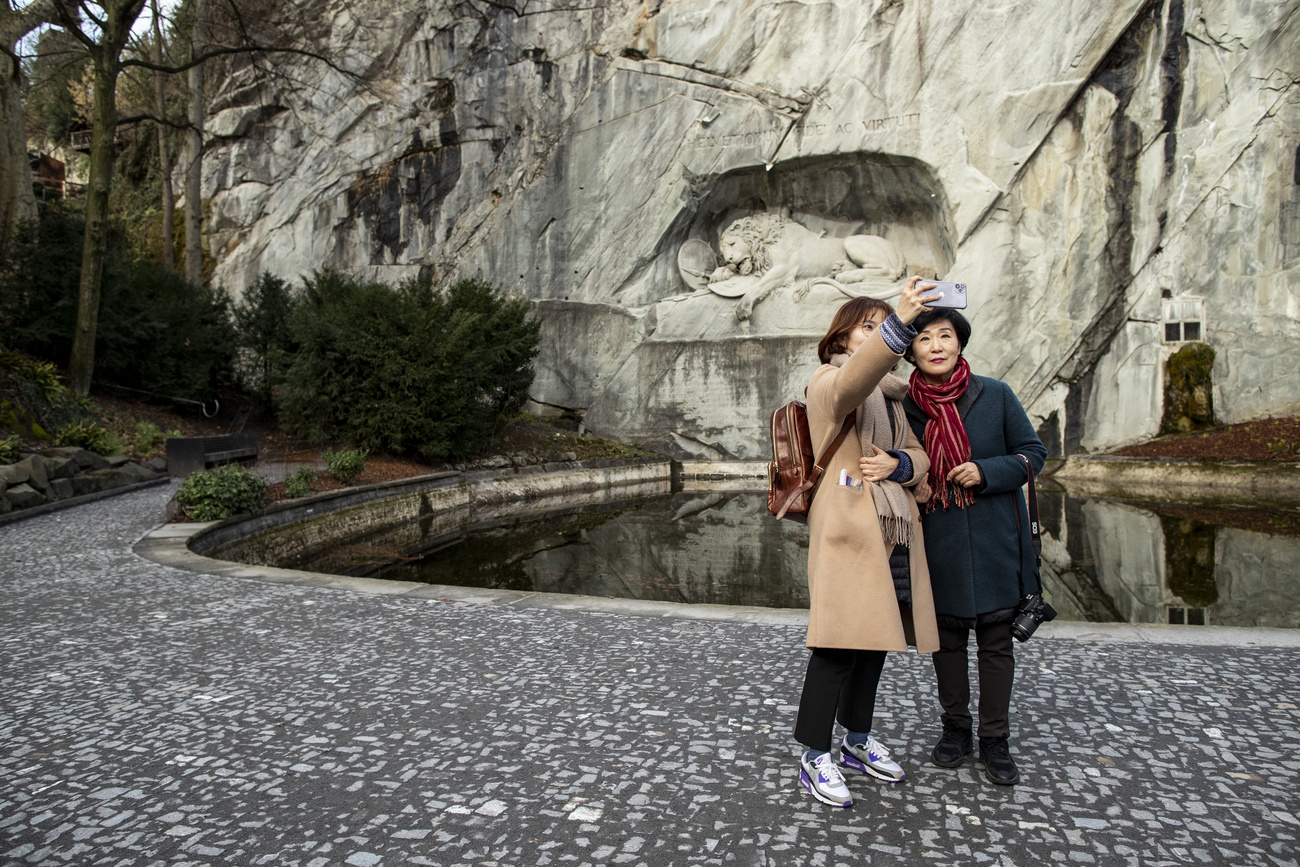Swiss Alps could profit from ‘heat escape’ tourism
Climate change could force low-lying Alpine resorts in Europe to close their ski operations in the coming years. However, they could become a heatwave-free haven for summer tourists.
Snow shortages have been affecting Alpine ski resorts for years. Some have had to close owing to lack of snow, like La Sambuy (at an altitude of 1,850 metres) in France, which shut down in September.
With winter tourism no longer viable in many places, lower-lying Swiss resorts have been focusing more on the summer market. Sattel Hochstuckli (1,200 metres) in the central canton of Schwyz operates an amusement park with a toboggan run, suspension bridge and rotating gondola. Many other resorts are going in the same direction, offering rope parks and hiking, biking or scooter paths.
‘Weather fugitives’
These resorts could now get an extra boost in summer. The cooler climes in the Swiss Alps could attract “weather fugitives” eager to avoid the relentless heat that has characterised southern European destinations over the past few summers and is set to intensify.
“We will see the summer heat escape market growing tremendously in the decades ahead. Switzerland stands to benefit from that market shift,” says Daniel Scott, a professor of environmental management at the University of Waterloo in Canada.
There are already signs of a shift towards destinations less likely to hit 40°C. “The Baltics are trying to market themselves as an alternative coastal destination,” Scott says. “The Chinese government is building a chain of holiday resorts up mountains to attract tourists escaping the heat in large cities such as Beijing”.
As tourists consider where to spend their next summer holidays, could they be lured by breezy Swiss hiking trails and chilly mountain lakes instead of the warm waters of the Mediterranean?













You can find an overview of ongoing debates with our journalists here . Please join us!
If you want to start a conversation about a topic raised in this article or want to report factual errors, email us at english@swissinfo.ch.